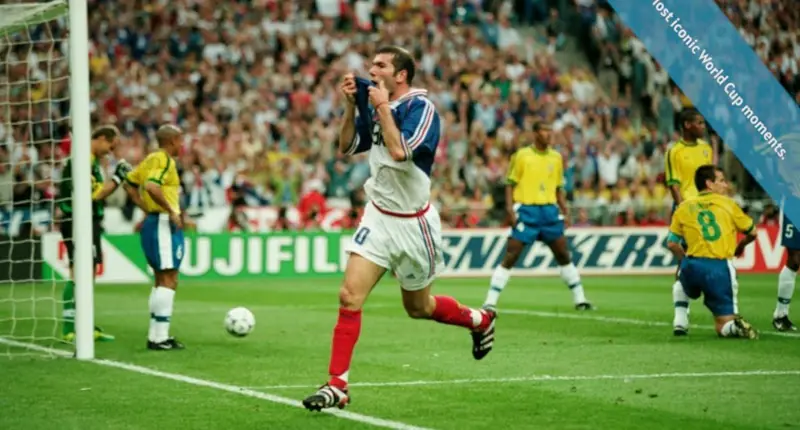Ah, 1998. For many, it was just another year, but for an entire nation, it was the summer when France truly fell in love with football and found its heroes. The FIFA World Cup, hosted on home soil, wasn’t just a tournament; it was a grand stage set for an unforgettable drama, a collective dream that united millions. And at the heart of that dream, weaving magic with his feet and a certain aura around him, was a player named Zinedine Zidane. This isn’t just a story about football; it’s about how a team defied expectations, how a nation discovered its identity, and how one man cemented his path to legendary status.
France’s Unforgettable Journey to World Cup Glory
The air in France during the summer of ’98 was absolutely electric, brimming with a mix of anticipation and a healthy dose of skepticism. Aimé Jacquet’s squad was a fascinating mosaic, affectionately known as the “Black, Blanc, Beur” team – a beautiful representation of France’s diverse cultural fabric, featuring talents like Lilian Thuram, Marcel Desailly, Didier Deschamps, and a young Thierry Henry. Despite the star power, many questioned if this team had the mettle to go all the way, especially with the weight of home expectations resting heavily on their shoulders. Yet, from the moment they kicked off against South Africa, through dominant performances against Saudi Arabia and Denmark in the group stage, a quiet confidence began to spread, turning doubters into believers one match at a time.
As the tournament progressed into the knockout rounds, the tension ratcheted up, and France’s journey became a thrilling test of nerves and resilience. They first faced a stubborn Paraguay, with Laurent Blanc’s golden goal finally breaking the deadlock in extra time, sparking an explosion of relief across the country. Then came a grueling quarter-final against a formidable Italy, which saw the host nation prevail in a heart-stopping penalty shootout, thanks to some heroic saves from Fabien Barthez. The semi-final clash against Croatia was perhaps the most dramatic, with Lilian Thuram, a defender, scoring two improbable goals to turn the tide after France went a goal down. Each victory wasn’t just a step closer to the trophy; it was a moment that galvanized the nation, forging an unbreakable bond between the team and its passionate supporters, proving that this “golden generation” was truly something special.
Zidane’s Masterclass: A Legend Forged in Paris
Before the final, Zinedine Zidane’s tournament had been a rollercoaster of emotions. Remember that early red card against Saudi Arabia? It saw him suspended for two crucial group games, raising questions and adding immense pressure on the team’s talisman. While he wasn’t prolific in front of goal after his return, his undeniable presence, his exquisite ball control, and his visionary passing were the engine of France’s midfield. The stage was set for the final at the Stade de France against Brazil, the reigning champions and tournament favorites, boasting stars like Ronaldo, Rivaldo, and Roberto Carlos. The narrative felt almost poetic: the hosts, the underdogs in the final despite their journey, against the titans of world football.
Then came the night of July 12th, 1998 – a night that etched Zidane’s name into the annals of football history forever. In a performance that transcended mere sport, Zidane delivered a masterclass, especially with his head, not his feet! He scored two absolutely stunning headers from corner kicks in the first half, both goals displaying incredible precision and timing. The roar that erupted after each goal was deafening, a collective release of joy and disbelief that echoed across Paris and beyond. With Emmanuel Petit adding a third late in the game, France secured a dominant 3-0 victory, their first-ever World Cup triumph. Those two goals by Zidane weren’t just crucial; they were iconic, transforming him from a brilliant player into an undisputed legend, an enduring symbol of a nation’s unforgettable moment of glory.
The final whistle blew, and the celebrations erupted in a way that had never been seen before in France. Champs-Élysées became a sea of tri-colors, a vibrant testament to a nation united in joy. The ’98 World Cup victory wasn’t just about winning a football tournament; it was a defining moment for France, a symbol of national unity and pride. Zinedine Zidane, the enigmatic midfielder, with his two unforgettable headers, became an instant icon, a legend whose name would forever be synonymous with that glorious summer. It’s a story that continues to resonate, reminding us that sometimes, a football team can be so much more than just a group of players – they can be the embodiment of a nation’s dreams.
